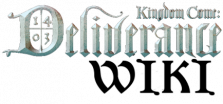In the pre-Hussite period the Church held extensive estates, sometimes exceeding in value the property of the nobility or even the King himself. The Church also collected various taxes and fees, which led to conflicts not only between the Church and the secular world, but within the Church itself.
In addition to the clergymen, priests and their helpers, the ecclesiastical establishment was also represented by votaries, archbishops, church officials, clerics and monks – altogether, the Church nourished and employed about a tenth of the population. High running costs and failure to ensure either the physical or spiritual wellbeing of the populace, coupled with the numerous woes of wars and pestilence, led to a radical weakening of ecclesiastical power and loss of confidence in the Church as an institution in the 14th century. It brought the first signs of a reformation movement, as well as many alternative ‘heretical’ sects and renewed interest in old pagan traditions.
Mass was at that time more of a social occasion than a spiritual one, bringing people together. They would enjoy themselves, even flirt or make deals. This changed with the Hussite reformation movement and the return to ‘true devotion’.
Declining trust in the Church was encouraged by the first Czech translations of the Bible, thanks to which the ideas actually contained in the Bible could finally spread by word of mouth even among the illiterate population. The spark of revolution had been struck.
In the pre-Hussite period the Church held extensive estates, sometimes exceeding in value the property of the nobility or even the King himself. The Church also collected various taxes and fees, which led to conflicts not only between the Church and the secular world, but within the Church itself.
In addition to the clergymen, priests and their helpers, the ecclesiastical establishment was also represented by votaries, archbishops, church officials, clerics and monks – altogether, the Church nourished and employed about a tenth of the population. High running costs and failure to ensure either the physical or spiritual wellbeing of the populace, coupled with the numerous woes of wars and pestilence, led to a radical weakening of ecclesiastical power and loss of confidence in the Church as an institution in the 14th century. It brought the first signs of a reformation movement, as well as many alternative ‘heretical’ sects and renewed interest in old pagan traditions.
Mass was at that time more of a social occasion than a spiritual one, bringing people together. They would enjoy themselves, even flirt or make deals. This changed with the Hussite reformation movement and the return to ‘true devotion’.
Declining trust in the Church was encouraged by the first Czech translations of the Bible, thanks to which the ideas actually contained in the Bible could finally spread by word of mouth even among the illiterate population. The spark of revolution had been struck.
